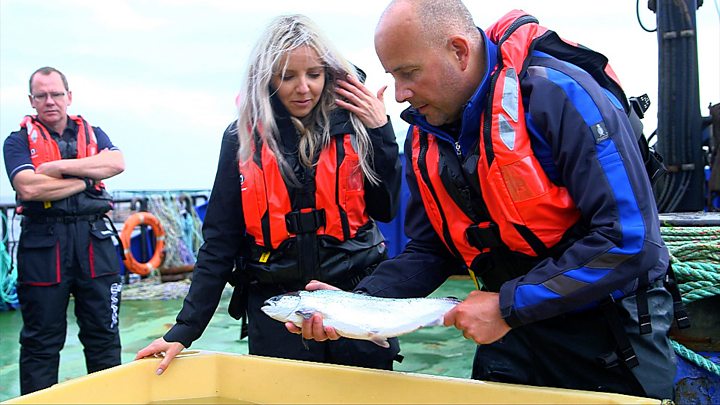Orkney 5G trials could soon be reality

Media playback is unsupported on your device
5G networks are starting to pop up in UK cities – but for many rural areas even getting a basic mobile signal remains a challenge.
This was certainly the case in the Orkney Islands, an archipelago of 70 islands off the north coast of Scotland.
Its population of 22,000 is spread across 20 of these islands and has consistently ranked as one of the most under-connected in the country.
But this could be about to change.
The 5G Rural First project, a consortium of more than 30 organisations, has been running trials with local businesses, using bespoke 5G networks, for the past 18 months.
Now, a landmark decision from Ofcom, the UK’s communications regulator, means these trials could become reality sooner that anticipated.
The regulator says it is opening up unused parts of the airwaves, also known as spectrum, to rural communities.
The unused spectrum is mostly owned by mobile phone companies but will now be sold to anyone who identifies a legitimate use for it.
It will be allocated on a first-come first-served basis, with bids being accepted towards the end of the year.
If accepted, the bidder will have to cover costs only, which Ofcom says could be as low as £85 for a business wanting to create its own local network.
The most remote areas of the UK could benefit from locally operated 5G networks
“Mobile operators want to provide services right across the country but in some places they don’t use all the spectrum, so some of it might be available for others to use,” Ofcom group director of spectrum Philip Marnick said.
“We want people to be able to use spectrum as a way of deploying new services, be it in rural areas where people are doing new and interesting things or actually inside factories or offices as we go towards more industrial internet of things and 5G services, we just want people to be able to use it and do it.”
But at least one of the four major mobile networks has said this new bidding system potentially clashes with its plans for the spectrum.
“These ambitions must be balanced with the spectrum rights of existing users in the 3.8-4.2GHz band,” Three general counsel and regulatory affairs director Stephen Lerner said.
“We have exciting plans to use this spectrum to provide 5G home broadband in competition with BT and Virgin.
“Continued access to the band is fundamental to this ambition.
“We therefore call on Ofcom to ensure that new users do not interfere with our planned 5G deployment.”
Ofcom says it will assess each bid to ensure there is no interference with other users.
Image copyright
Richard Darbyshire
Scottish Sea Farms has been testing 5G technology for monitoring its cages
5G farming
Salmon is the UK’s second largest food export, worth over £720m per year.
With dangerous weather conditions and distant offshore locations, the ability to monitor the health of fish remotely with a variety of sensors was thought to be an ideal test case for 5G technology, which can connect many different devices in one system.
Each cage holds up to 25,000 fish, so there is a lot of data to be collected.
“The equipment had to be ‘Orkney-fied’ originally to make it more robust and to stand up to the winter weather that we get here,” Scottish Sea Farms regional location manager Richard Darbyshire said.
“It can get pretty wild in December and January – it can peak at wind gusts of up to 140mph.
“But we’ve come through that – we have some good equipment out on the [salmon] pens and we are getting some really good data.”
High-definition video could be used to monitor the health of salmon remotely
Sensors in the water measure salinity, temperature and oxygen to work out the best times to feed the fish.
Feeding is the most expensive part of the production process, with food costing up to £1,400 per tonne.
Automatic feeding systems are working off a wi-fi network over a 5G connection, with four feeders running at once.
In the future, high-definition cameras could also be deployed to check the health of the fish without removing them from the water.
“5G brings a couple of elements that maybe we didn’t have in 4G,” said Nick Chrissos, Europe, Middle East, Africa and Russia director of innovation for Cisco, one of the 5G Rural First partners.
“It brings higher bandwidth and low latency, the time that the signal goes back and forth again becomes much much faster, and this means we can have much more control over remote areas.”
You can watch Jen Copestake’s film from the Orkney Islands in this week’s Click. If you are in the UK, you can watch the whole programme on BBC iPlayer.
